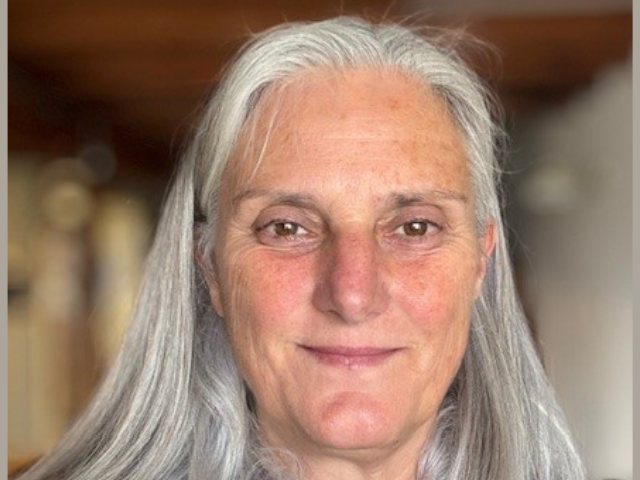
“It’s about relationships”: research challenges gaps in mental health support
10 October
A study led by a PhD researcher is exploring how people living with severe and enduring mental health conditions experience community life and what forms of support they truly value.
Sharon Hutchings, a PhD student in the School of Health Sciences at Bangor University, is leading a project that focuses on the social dimensions of mental health - an area she believes is too often eclipsed by medical and clinical perspectives.
Sharon said:
My interest has always been in how society supports, or fails to support, people’s mental health. For too long, mental health has been seen as a technical problem to fix, rather than a social justice issue.”
The study’s first phase engaged a cohort of approximately 3,000 people with lived experience of repeated psychosis, via the National Centre for Mental Health (NCMH), which is funded by Health and Care Research Wales. The aim was to better understand existing community support services, how they are accessed and what gaps remain.
The response was striking: 497 people completed the survey, with 200 expressing interest in contributing to the second phase of the research. Sharon said: “The openness of the responses was humbling. People weren’t just ticking boxes, they were telling stories.”
Sharon said many participants highlighted the value of support rooted in relational practices - empathy, respect, non-judgement and being treated as a whole person rather than a diagnosis.
According to Sharon, preliminary findings reveal a clear gap between the support that is currently available and what is actually needed. Many participants said what matters most is being treated with kindness and respect, rather than just going through standard medical routines. Support from peers, chances to volunteer and easy-to-use tools like apps or online groups were also seen as really helpful, especially for those who struggle to attend services in person.
People also talked about common barriers, such as feeling judged, limited service hours, poor public transport and support that didn’t suit their age or situation. Many felt workplaces needed to be more understanding of mental health challenges. Some said they preferred not to use services at all because they valued their privacy and independence.
Formerly a sociology lecturer at Nottingham Trent University, Sharon made a significant career shift to pursue this research after relocating to North Wales and securing funding from Health and Care Research Wales.
For Sharon, this project is more than just academic work. She said: “I have close family members who’ve experienced harm due to inadequate mental health support. That’s why I’m passionate about this.”
Sharon said the second phase of the study will focus on deepening the analysis and engaging both service users and sector professionals. Her hope is that the findings will inform future mental health policy while also empowering communities and organisations working in the field.
She added:
If this research doesn’t lead to some kind of positive change - even something small - then it’s a waste. I’m not in it for the publications. I’m in it because people matter.”
Sharon concluded: “People are the real experts and have been incredibly honest. Now it’s our turn to listen and act.”
The main supervisor is Professor Peter Huxley, a social worker with decades of experience in mental health practice and research. He leads a supervisory team and meets regularly with Sharon.
Professor Huxley said: “Sharon has approached this research with rigour and enthusiasm that is matched by the participants. The funders are to be commended for providing us with this opportunity for a student to develop their research career. Positive change is what we all hope for and believe in.”
Sign up to our weekly newsletter and keep up with the latest research news, funding opportunities and other useful information.

Sharon Hutchings